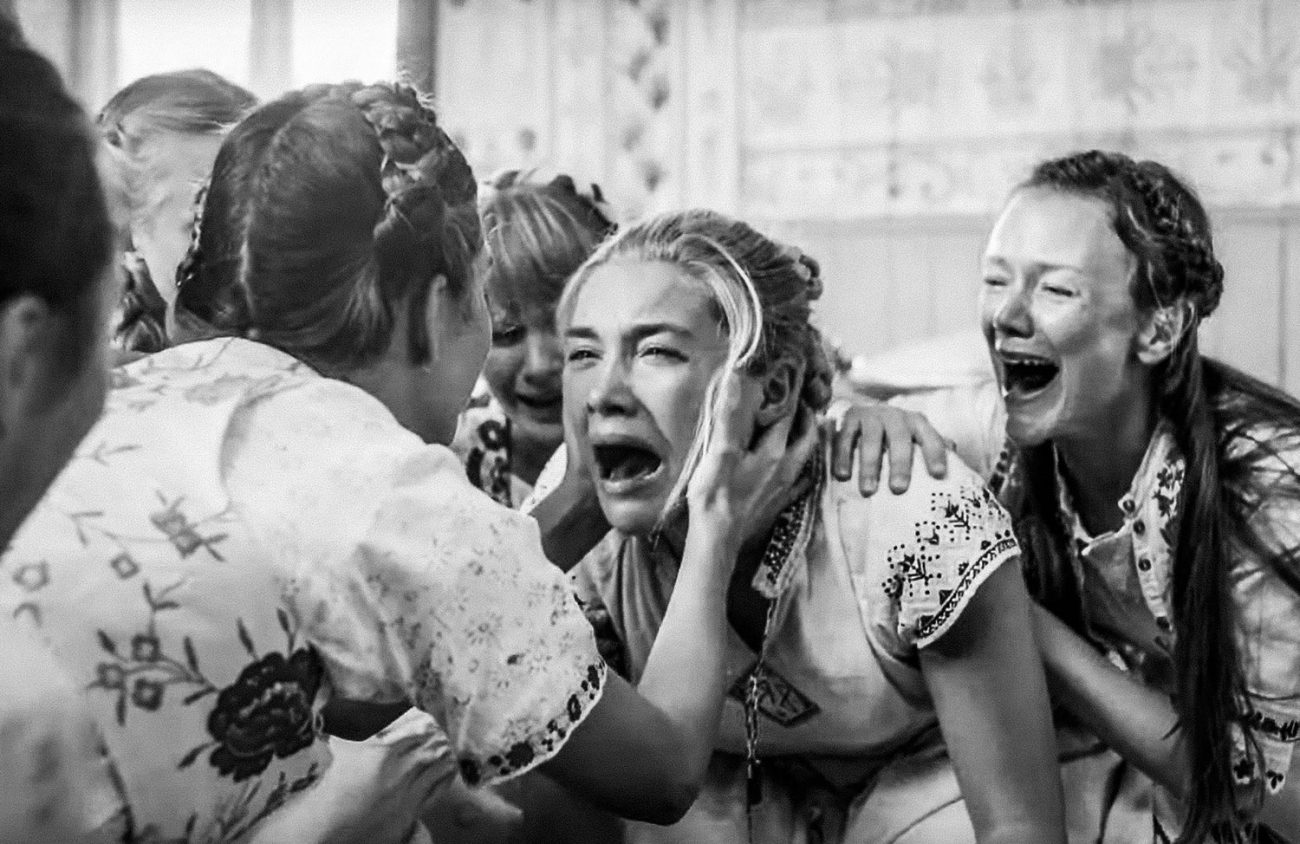Director Jordan Peele recently suggested that Ari Aster’s new film Midsommar raises the bar on horror in such an unprecedented and frankly terrifying way that every scary movie made after it will be forced to respond, in one way or another. That’s high praise.
Having just sat through — or, rather, squirmed through, whimpered through, felt-like-running-away through — Midsommar, I find Peele’s words fall short in capturing the full extent of Aster’s accomplishment.
There are scary movies that titillate and spook and shock, and then there are scary movies that creep and crawl and worm under your skin — and then, once in a generation or so, you come upon a scary movie that is so horrifying, so disturbingly real and unreal at once, that it’s almost not fun. It cuts so close to the bone it leaves you traumatized.
Anyone who’s dabbled in hallucinogens has heard this warning: Dude, this is heavy shit. Not to be messed around with. Tread carefully. Think twice.
That is Midsommar. I left the theater, and the world looked permanently altered — even more treacherous, even less safe. You’ve been warned. I’m not kidding.
Set almost exclusively in the permanent blinding daylight of Scandinavia’s summer solstice, Aster’s follow-up to his sleeper hit Hereditary tells the story of a clutch of college students who travel to rural Sweden to take part in Midsommar, an ancient ritual that, at first sight, looks like the communal hugger-mugger village of precious and faux-innocent hippies.
At the center of this group is a couple on the skids: Dani (Florence Pugh), reeling after a devastating family tragedy, and her frustrated boyfriend Christian (Jack Reynor), whose strained concern and false empathy register just short of total asshole. It’s an old horror premise — disintegrating lovers take a healing trip into paradise — but, in Aster’s hands, the conceit is amplified and funneled through a wormhole of ritualized derangement until the fabric of reality itself is torn apart.
Similar to the ratcheting nightmare of Hereditary, Aster — who also wrote Midsommar — combines everyday modern elements and outrageous taboos in such a way that the viewer is constantly off-kilter, hoping against hope that Aster’s not actually going there — oh, yep, he’s going there. And then he crosses that line.
The film, however, is never grotesque or cheap — quite the contrary. Like Kubrick and Polanski before him, Aster uses the camera (the cinematography is breathtaking) to create a lurking sense of mortal dread, and then he subjects his characters to a disorienting, disquieting accumulation of macabre twists of fate. In Midsommar, the universe is so over-determined — a malevolent and shimmering mushroom trip, an ancient storyboard of human sacrifice — that reality and symbolism become inextricably meshed.
And it all happens in broad daylight, among a group of uprooted people experiencing ordinary human emotions: fear, joy, confusion, lust, grief — especially grief. Pugh’s portrayal of a woman unhinged by domestic disaster rivals Toni Collette’s groundbreaking performance in Hereditary; she is the nexus of this film’s converging elements, and from her suffering springs the true terror at the heart of this film. Aster, a genius of horror, might also be cinema’s foremost portrayer of real grief.
Oddly, Midsommar is being hailed in some reviews as a “break-up horror comedy,” and I suppose I could agree with that, if “comedy” is meant in the divine, Dante-esque sense. At its core, Aster’s film submerges the rugged individual inside the selfless communal, which sounds like such a wonderful, utopian thing — until you reckon the cost. Like carpetbaggers in paradise, we love to glance longingly backward with fabricated nostalgia into some fairy tale of fellowship and peace, cursing the modern world for its harsh individualism, materialistic greed and dangerous denial of aging and death.
In Midsommar, Aster attacks our deepest beliefs with wicked glee, and the truly devious thing — the terrifying truth — is that the movie turns our pieties against us in such a way that our gravest defects become the only defense against (or, perhaps, hindrance to) the vision of a perfect society in primordial stasis. Is it better that we all live “free” while killing the planet, or would it be perhaps better if we surrender ourselves to a greater cause? Would we be better off if we all voluntarily died with dignity at 72, rather than suffering unto the bitter end alone in a nursing home? I don’t know.
As in Shirley Jackson’s The Lottery, Aster hints that the price of paradise is not dreaming; it is blood. These are the real stakes in Midsommar. There are fates worse than death, after all, but nobody wants to die to alleviate them. It is at the intersection of this dire truth that the movie finds its fearsome anxiety. (Broadway Metro)
